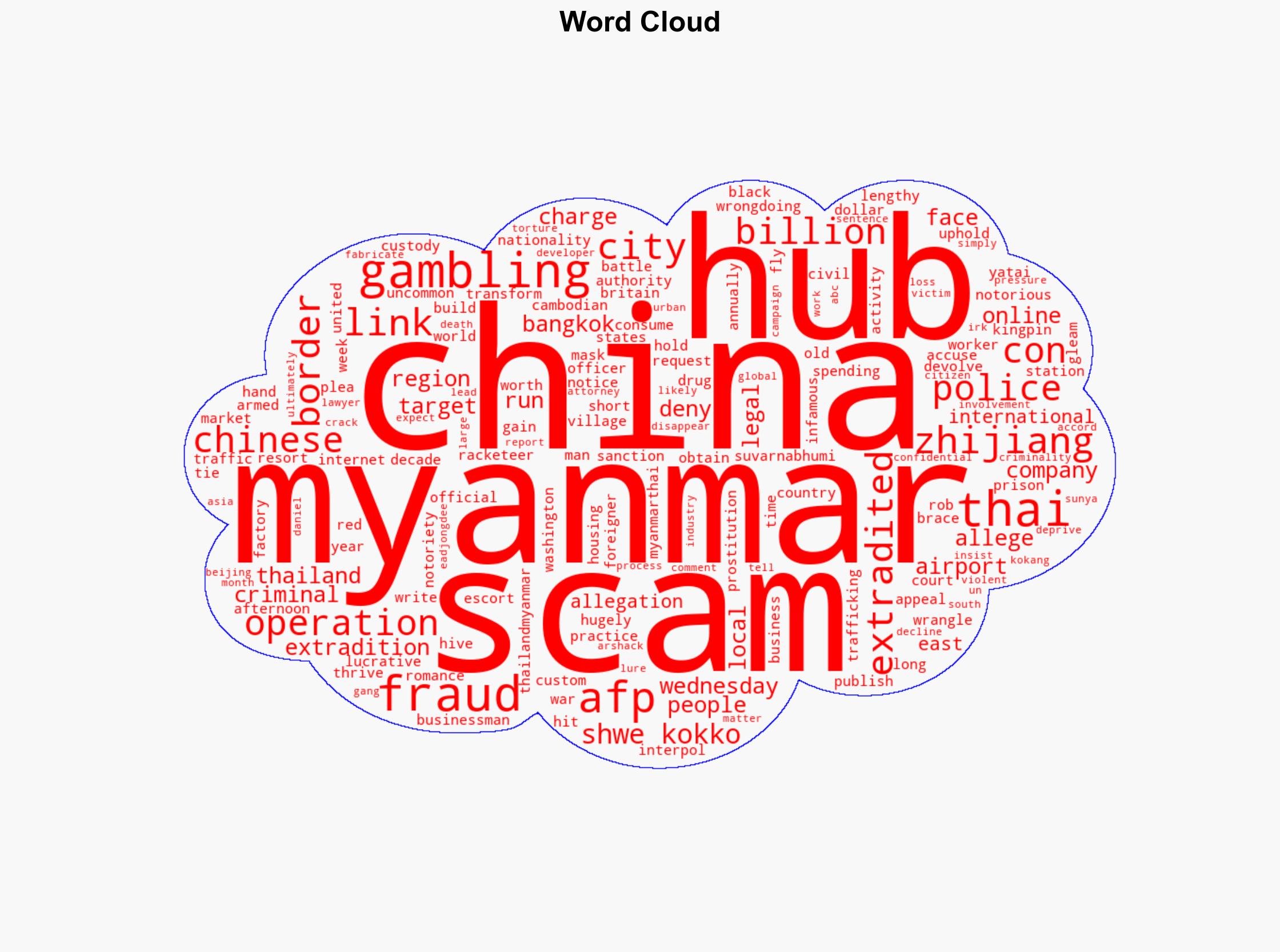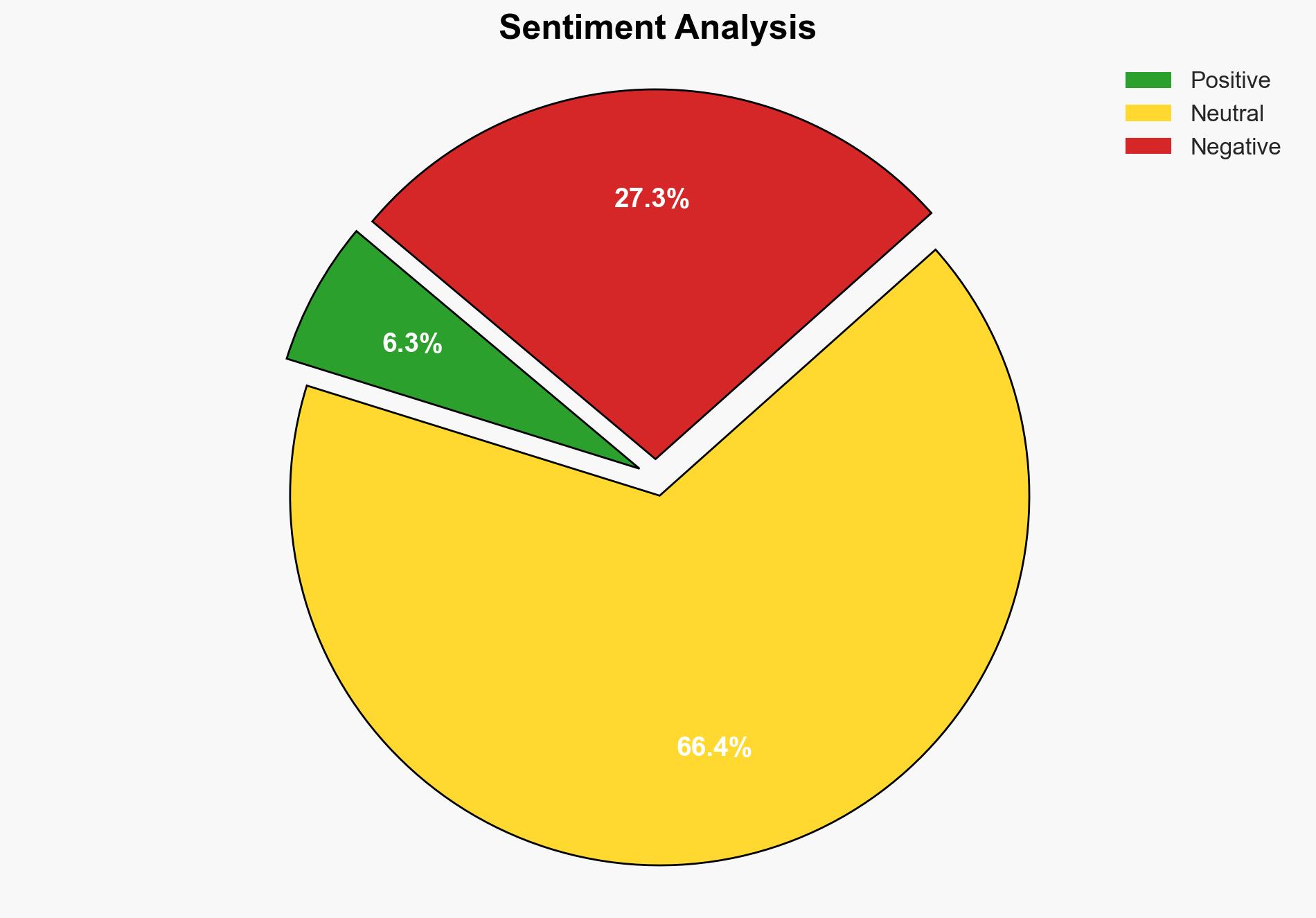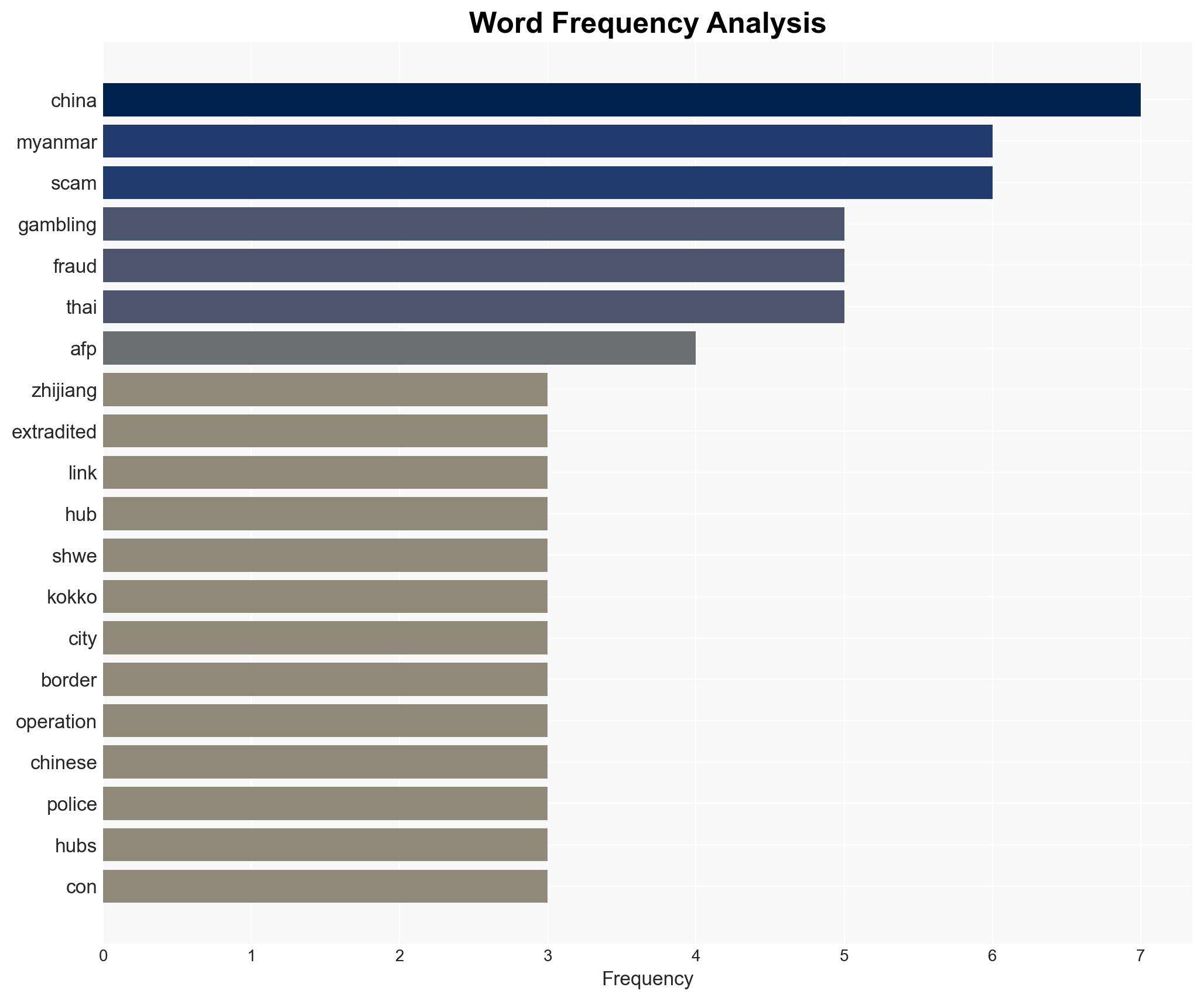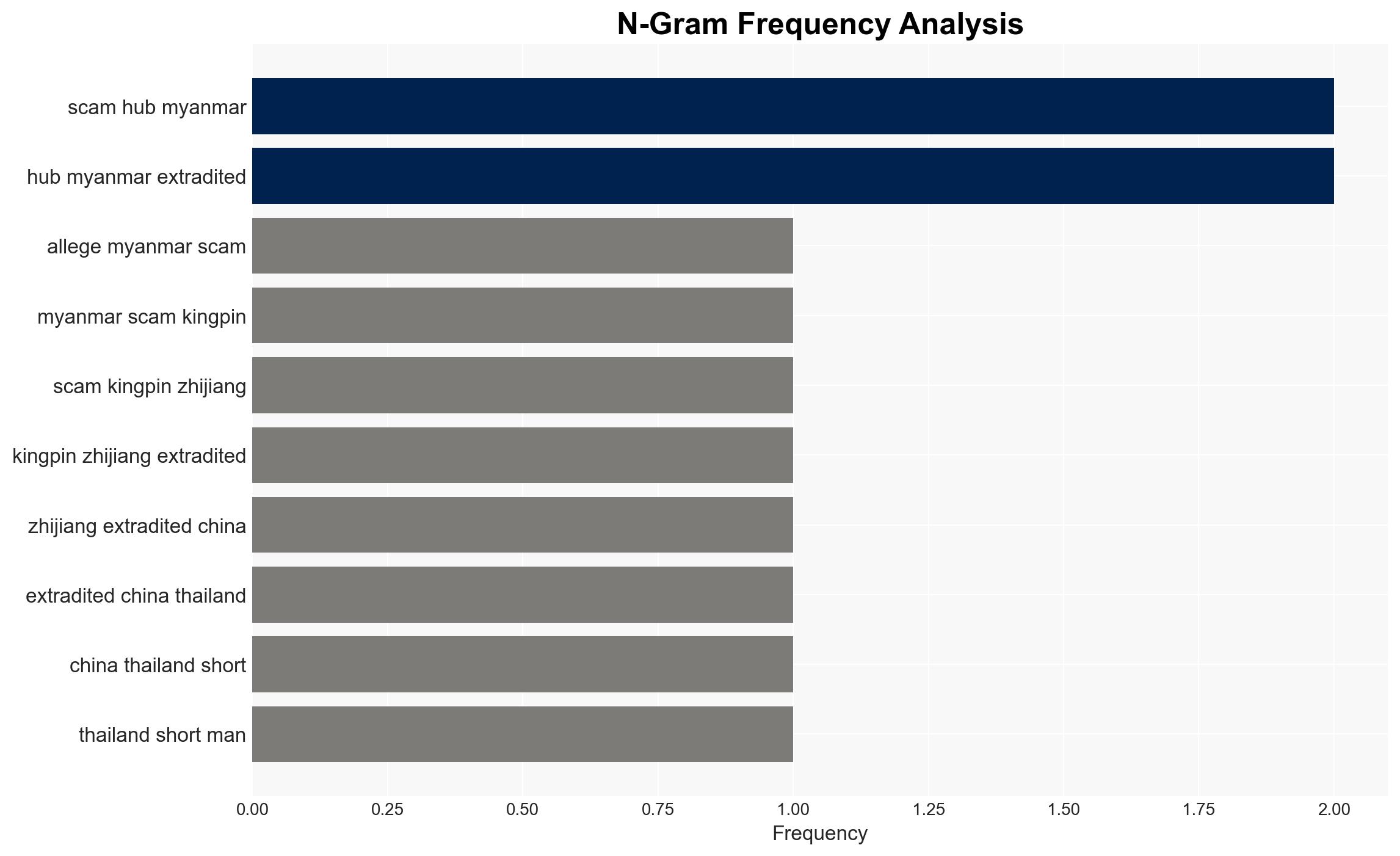Alleged scam kingpin extradited to China from Thailand – ABC News (AU)
Published on: 2025-11-12
AI-powered OSINT brief from verified open sources. Automated NLP signal extraction with human verification. See our Methodology and Why WorldWideWatchers.
Intelligence Report: Alleged scam kingpin extradited to China from Thailand – ABC News (AU)
1. BLUF (Bottom Line Up Front)
With a moderate confidence level, the most supported hypothesis is that Zhijiang’s extradition to China is part of a broader Chinese strategy to dismantle transnational criminal networks that are perceived as threats to national security and economic stability. It is recommended that regional stakeholders enhance cooperation on legal and intelligence fronts to address the transnational nature of these criminal activities.
2. Competing Hypotheses
Hypothesis 1: Zhijiang’s extradition is primarily a result of China’s intensified efforts to combat transnational organized crime, particularly those targeting Chinese citizens and involving large-scale financial fraud.
Hypothesis 2: The extradition is a politically motivated move by China to exert influence over regional criminal networks and assert dominance in Southeast Asia, using legal mechanisms as a tool for broader geopolitical objectives.
Hypothesis 1 is more likely given the context of China’s recent international campaigns against online gambling and fraud, as well as the involvement of multiple countries in the extradition process, indicating a shared interest in addressing these criminal activities.
3. Key Assumptions and Red Flags
Assumptions include the belief that regional cooperation is genuine and not influenced by external political pressures. A red flag is the potential for misinformation or propaganda from involved state actors, particularly regarding the portrayal of Zhijiang’s activities and the legal processes. Deception indicators include the lack of transparency in the extradition process and potential discrepancies in official narratives from China and Thailand.
4. Implications and Strategic Risks
The extradition could lead to increased regional tensions if perceived as overreach by China. It may also prompt other countries to reassess their extradition treaties and cooperation with China. There is a risk of retaliatory actions by criminal networks, potentially escalating into cyber or economic disruptions. Additionally, the situation could influence regional geopolitical alignments, particularly if perceived as a precedent for future extraditions.
5. Recommendations and Outlook
- Enhance regional intelligence-sharing frameworks to better track and dismantle transnational criminal networks.
- Strengthen legal cooperation mechanisms to ensure transparency and adherence to international legal standards.
- Monitor for retaliatory actions by criminal networks and prepare contingency plans for potential cyber or economic disruptions.
- Best-case scenario: Successful prosecution of Zhijiang leads to a significant reduction in regional scam activities and improved international cooperation.
- Worst-case scenario: Extradition leads to increased regional tensions and retaliatory actions by criminal networks, affecting regional stability.
- Most-likely scenario: Extradition proceeds with limited immediate impact, but sets a precedent for future international legal cooperation against transnational crime.
6. Key Individuals and Entities
Zhijiang, Shwe Kokko, Yatai Company, Thai Police, Interpol, Daniel Arshack (Attorney), Sunya Eadjongdee (Thai Lawyer)
7. Thematic Tags
National Security Threats
Structured Analytic Techniques Applied
- Cognitive Bias Stress Test: Expose and correct potential biases in assessments through red-teaming and structured challenge.
- Bayesian Scenario Modeling: Use probabilistic forecasting for conflict trajectories or escalation likelihood.
- Network Influence Mapping: Map relationships between state and non-state actors for impact estimation.
Explore more:
National Security Threats Briefs ·
Daily Summary ·
Methodology





